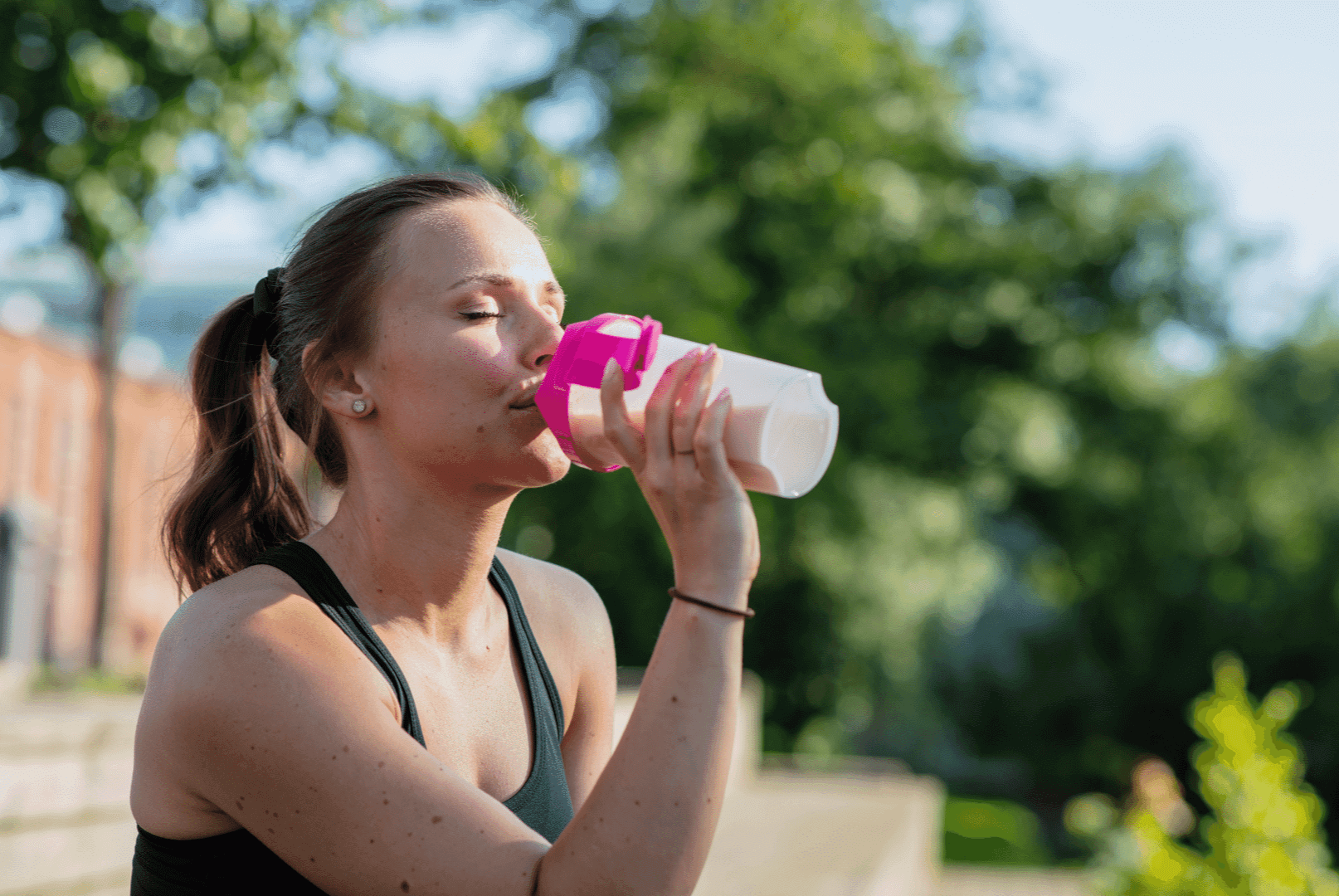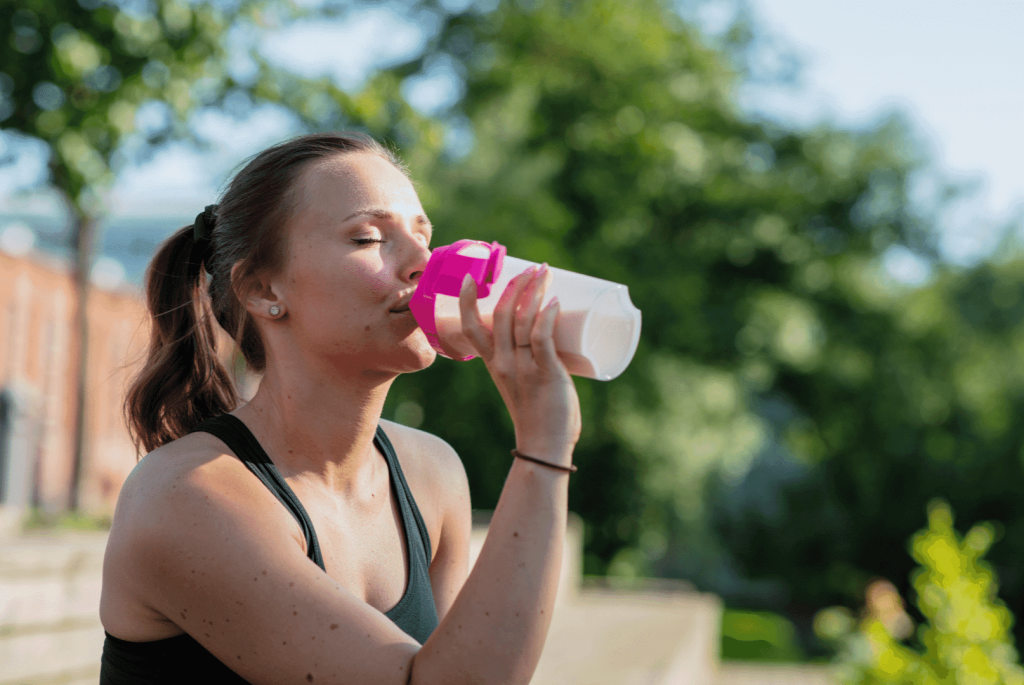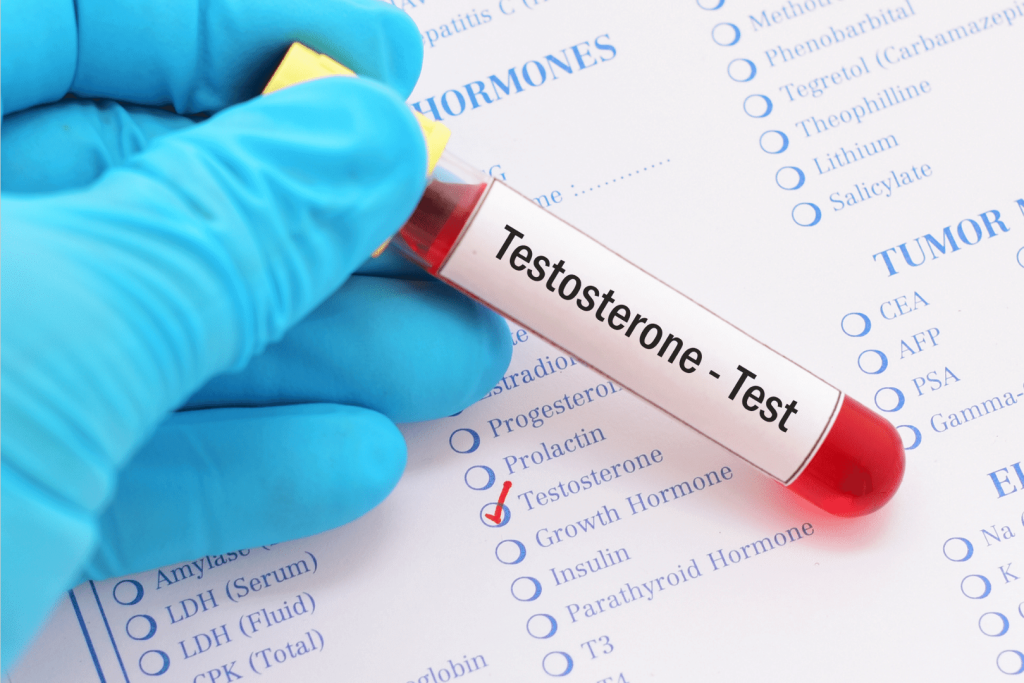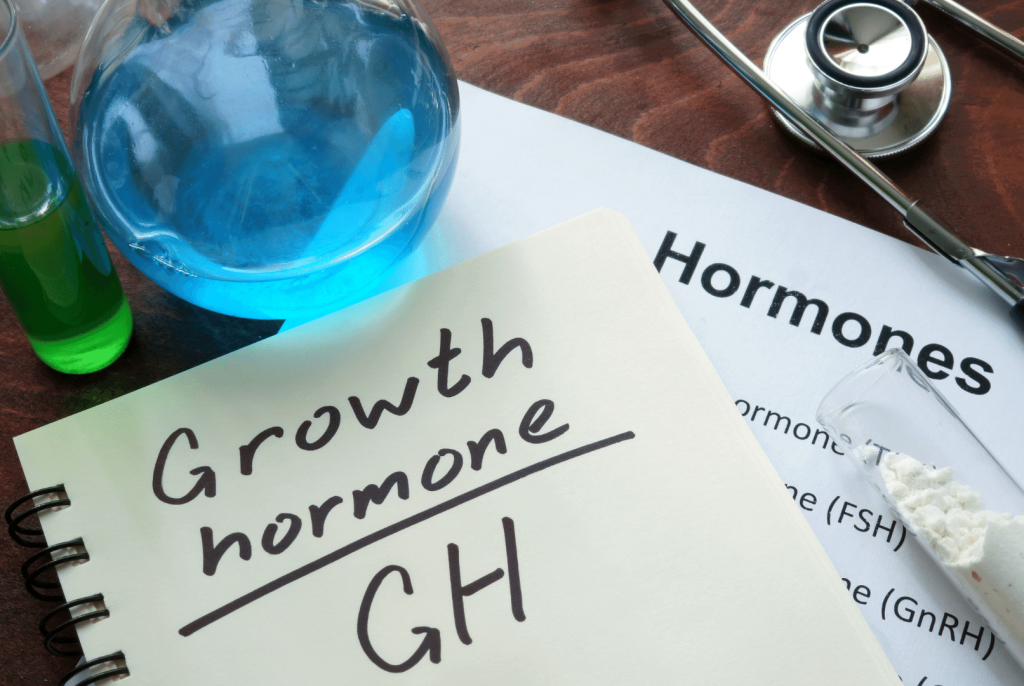
7 Reasons You’re Not Gaining Muscles


7 Reasons You’re Not Gaining Muscles
As a result, many people, some of them call themselves hardgainers, struggle for years with very little muscle gain results to show for it.
In this article, we’ll cover 7 commonly overlooked factors that can keep you from achieving the muscle growth of your dreams.
1. You’re not eating enough calories
The anabolic process requires a lot of energy to build muscles. Your body burns around 2500 – 2800 calories to synthesize each pound of lean muscle. This means you need to consume more calories than you burn.
First, start with finding out how many calories you burn each day.
Estimating calorie expenditure could be tricky, especially because the daily requirements vary from person to person. It depends on your activity levels, muscle mass, age, gender, and many other factors. The only way to accurately measure calorie expenditure is to measure all the oxygen and carbon dioxide that comes out of you, which is only possible in a metabolic chamber in a research facility.
Instead, you can plug in a few numbers into a formula that can help you estimate your daily calorie expenditure, such as the Harris-Benedict BMR formula. It’s a relatively good estimate of daily caloric expenditure. However, it may not be accurate for those who are very muscular or very fat.

There are two steps to calorie calculation through this formula:
Step 1: Estimate your basal metabolic rate (BMR)
- For men:
- BMR = 66.47 + (13.75 x weight in kg) + (5.003 x height in cm) – (6.755 x age in years)
- Or
- BMR = 66.47 + (13.75 x weight in pounds x 0.4536) + (5.003 x height in inch x 2.54) – (6.755 x age in years)
- For women:
- BMR = 655.1 + (9.563 x weight in kg) + (1.850 x height in cm) – (4.676 x age in years)
- Or
- BMR = 655.1 + (9.563 x weight in pounds x 0.4536) + (1.850 x height in inch x 2.54) – (4.676 x age in years)
Step 2: Estimate your active metabolic rate (AMR)
Multiply your AMR with a specified number for various activity levels.
- Sedentary lifestyle AMR = BMR x 1.2
- Slightly active lifestyle (exercise 1–3 days/week) AMR = BMR x 1.375
- Moderately active lifestyle (exercise 3–5 days/week) AMR = BMR x 1.55
- Active lifestyle (exercise 6–7 days/week) AMR = BMR x 1.725
- Very active lifestyle (hard exercise 6–7 days/week) AMR = BMR x 1.9
So, if you are a 40-year-old male with a moderately active lifestyle and are 183 cm (72 inches) in height and weigh 85 kg (187.3 lb), then your BMR would be:
| BMR = 66.47 + (13.75 x 85) + (5.003 x 183) – (6.755 x 40)BMR = 1881 calories/dayNow, AMR = BMR x 1.55 = 2916 calories/day |
Then, your total daily calorie requirement is therefore 2916 calories if you wish to maintain your current weight. Building muscles would require more calories than 2916. It’s a good idea to start with 500 extra calories per day, so you will consume around 3416 calories/day. Then, monitor for muscle and fat gain after a few weeks and adjust accordingly.
2. You’re not eating enough protein
Protein is the #1 most important macronutrient for muscle gain, weight loss, and better athletic performance. It’s a key nutrient for muscle protein synthesis and helps repair muscle fibers. Protein is a part of several crucial body processes and is also a building block for hormones and enzymes. The amount of muscle proteins in your body exceeds that of other proteins. That’s why adequate protein intake is essential for muscle building and effective muscle functions. Now, how much protein intake do you need?
Protein needs vary from person to person. Factors like activity level, weight, height, and others affect individual protein requirements. Many people rely on the recommended daily allowance (RDAs) to check their micro and macronutrient needs. However, you should remember that RDA is the bare minimal intake. Most people need more to stay healthy, and even more for muscle maintenance and enhancing muscle mass. If you do intense physical activity for muscle building, consider taking 1.6-2.4 g/kg (0.73-1.10 g/lb) protein.
Aside from eating enough protein every day, you should also spread it out across all your meals. How often you eat the protein is also important because the more frequently you cross the mTOR activation threshold, the more often you’ll stimulate muscle protein synthesis. The upper daily intake of 0.998 g/lb body weight/day requires 0.249 g/lb of body weight/meal spread out over four meals. Consider adding protein to each meal of the day.
Looking for some ways to increase your protein intake? Read our article on 13 Ways to Increase Your Protein Intake.

3. You’re not sleeping enough or your sleep quality sucks
Disrupted sleep could lead to fat gain and muscle loss. Persistent sleep loss could be a potent catabolic stressor, which reduces muscle function and may impair muscle protein metabolism. Even one sleepless night can affect the anabolic processes.
To make matters worse, a single night of sleep deprivation could reduce plasma testosterone—an important hormone for building muscle mass—by 24%.
Sleep is also important for muscle strength. People with shorter sleep duration tend to be weaker than those sleeping for adequate hours. You must be wondering how many hours count as adequate sleep.
Seven to nine hours of quality sleep every night is best. If you have a relatively more active lifestyle, aim for the higher end of this range. Note that daytime naps do not replace nighttime sleep, although they might help reduce the effects of sleep deprivation.
While sleep duration is crucial for anabolic muscle growth, sleep quality matters too. Factors like how quickly you fall asleep and the number of times you wake up during the night are also part of your sleep quality.
Creating healthy sleep habits is a great way to improve both sleep quality and duration. Refer to this article to learn about optimizing your sleep quality: How to Maximize Your Sleep Quality for Optimal Health, Muscles, and Performance.
If nothing you do makes you wake up feeling rested, speak to your doctor about getting a sleep study to rule out sleep disorders.
4. Your vitamin D levels are low or suboptimal
More than 40% of Americans have insufficient vitamin D levels. It is an important steroid hormone for muscle growth. Low or suboptimal vitamin D can have a negative impact on muscle cell function. Moreover, vitamin D affects leptin, a hormone that regulates appetite and fat storage. It is also crucial for muscle mitochondria to provide enough energy for your muscle cells. Besides, vitamin D deficiency can contribute to weak and small muscles.
The sun is a great source of vitamin D. Sadly, for most people, sun exposure is only enough to prevent rickets but it is not enough to achieve optimal health and muscle mass. If you live in colder climates, you’ll most likely need vitamin D supplements to safely optimize your levels. Doses of up to 4,000 IU/day are safe and effective, although some people need higher doses to bring their levels into the optimal range of 30 – 40 ng/mL. Also, vitamin D supplementation may have a favorable effect on testosterone which helps grow muscle mass.
5. Your testosterone is suboptimal

Testosterone is a hormone that plays an important role in the body. In men, it helps regulate bone mass, fat distribution, muscle strength, sex drive, and more. In both genders, it helps increase muscle protein synthesis and ultimately increases muscle mass.
Most cases of suboptimal testosterone come from diet and lifestyle factors. So, you want to work on the following factors before considering adding testosterone or other steroid hormone precursors.
Common natural ways to boost testosterone include:
- Exercise, especially resistance training
- Diet
- Adequate sleep and healthy circadian rhythm
- Ginger extract
- Vitamin D supplements
Whereas, factors that can reduce testosterone are:
- Unmanaged stress
- Excessive sugar intake and insulin resistance
- Prolonged calorie deficit
- Poor sleep and circadian rhythm
- Insulin resistance and poor blood sugar control
- Alcohol
- Obesity
You may have heard the myth that high-fat foods decrease testosterone levels. The truth is that being fat can reduce testosterone, but eating fat doesn’t necessarily make you fat–calories do! In contrast, a low-fat diet could also reduce testosterone because you need fat and cholesterol to build the hormone. A safer option is to choose healthy fat sources and include some of them in your diet and overall daily calorie limit rather than avoiding fat altogether.
Foods that help naturally optimize testosterone and muscle mass include:
- Fatty fish like sardines and salmon
- Leafy greens
- Avocados
- Eggs
- Red meat
- Seafood, since they’re rich in zinc and selenium
Red meat from grass-fed and pasture-raised sources is also great for testosterone as it is a rich source of arachidonic acid and cholesterol. Cholesterol is a key building block of testosterone. Whereas, arachidonic acid is essential to responses to strength training and is a major component of your muscles. Prostaglandins produced from arachidonic acid promote protein synthesis and skeletal muscle fiber growth.
Getting your testosterone into optimal range can improve all aspects of your health and well-being. Consider the above-mentioned natural options to boost testosterone before opting for hormone replacement therapy because once you get on it, coming off it can be quite challenging.
6. Your growth hormone levels are suboptimal
Human growth hormone (HGH) is a hormone produced by a gland in the brain. It is an essential hormone that plays a central role in your growth during childhood and adolescence. Later in adult life, HGH promotes muscle protein synthesis and muscle growth. Adults with HGH deficiency could develop the following issues:
- Poor health
- Increased body fat
- Weak muscles and bones
The positive association of HGH with muscle growth makes it popular among athletes and bodybuilders. For the same reason, HGH and drugs that increase it are on a list of banned substances for most sports. However, you can attempt to improve your circulating HGH levels naturally.
Growth hormone increases during deep sleep, fasting, intensive physical activity like heavy squats, and heat or cold exposure. You can also attempt to boost the growth hormone through foods with amino acids like fish, beans, and dairy. Supplements containing arginine, glutamine, glycine, lysine, and ornithine also help enhance hGH. A 30-minute sauna session is also helpful in increasing HGH levels. Lastly, you want to optimize your sleep to promote the best growth hormone secretion every night.

7. You’re not stimulating your mTOR enough
Mammalian target of rapamycin (mTOR) is an important protein that participates in controlling various cell functions. It regulates cell growth and protein synthesis. It also helps increase muscle size and strength by facilitating muscle protein synthesis.
One of the powerful mTOR stimulants is the amino acid leucine. An increase in leucine concentration signals to mTOR that adequate dietary protein is available to synthesize new muscle protein. As a result, mTOR gets activated. Leucine-rich foods are one option to boost mTOR. You can usually get enough leucine (3 grams) by eating a serving of protein-rich food that contains about 30 grams of proteins in each meal.
Supplements containing 3 grams of leucine before exercise or consuming enough proteins in each meal can help activate mTOR.
Conclusion
Growing muscles can improve your aesthetics, performance, and longevity. Many people struggle for years to gain muscles because they make the mistakes outlined above. To successfully grow muscles, you need to eat enough calories and protein, sleep well, and pay attention to these other factors.
References
- Witard OC, Garthe I, Phillips SM. Dietary protein for training adaptation and body composition manipulation in track and field athletes. Int J Sport Nutr Exerc Metab. 2019;29(2):165-174. doi:10.1123/ijsnem.2018-0267
- Schoenfeld BJ, Aragon AA. How much protein can the body use in a single meal for muscle-building? Implications for daily protein distribution. J Int Soc Sports Nutr. 2018;15(1). doi:10.1186/s12970-018-0215-1
- Cedernaes J, Schönke M, Westholm JO, et al. Acute sleep loss results in tissue-specific alterations in genome-wide DNA methylation state and metabolic fuel utilization in humans. Sci Adv. 2018;4(8):eaar8590. doi:10.1126/sciadv.aar8590
- Lamon S, Morabito A, Arentson-Lantz E, et al. The effect of acute sleep deprivation on skeletal muscle protein synthesis and the hormonal environment. Physiol Rep. 2021;9(1):e14660. doi:10.14814/phy2.14660
- Chen Y, Cui Y, Chen S, Wu Z. Relationship between sleep and muscle strength among Chinese university students: a cross-sectional study. J Musculoskelet Neuronal Interact. 2017;17(4):327-333.
- Nelson KL, Davis JE, Corbett CF. Sleep quality: An evolutionary concept analysis. Nurs Forum. 2022;57(1):144-151. doi:10.1111/nuf.12659
- Gordon PL, Sakkas GK, Doyle JW, Shubert T, Johansen KL. Relationship between vitamin D and muscle size and strength in patients on hemodialysis. J Ren Nutr. 2007;17(6):397-407. doi:10.1053/j.jrn.2007.06.001
- Sempos CT, Durazo-Arvizu RA, Dawson-Hughes B, et al. Is there a reverse J-shaped association between 25-hydroxyvitamin D and all-cause mortality? Results from the U.S. nationally representative NHANES. J Clin Endocrinol Metab. 2013;98(7):3001-3009. doi:10.1210/jc.2013-1333
- Trummer C, Pilz S, Schwetz V, Obermayer-Pietsch B, Lerchbaum E. Vitamin D, PCOS and androgens in men: a systematic review. Endocr Connect. 2018;7(3):R95-R113. doi:10.1530/ec-18-0009
- Pilz S, Frisch S, Koertke H, et al. Effect of vitamin D supplementation on testosterone levels in men. Horm Metab Res. 2011;43(3):223-225. doi:10.1055/s-0030-1269854
- Griggs RC, Kingston W, Jozefowicz RF, Herr BE, Forbes G, Halliday D. Effect of testosterone on muscle mass and muscle protein synthesis. J Appl Physiol. 1989;66(1):498-503. doi:10.1152/jappl.1989.66.1.498
- Chasland LC, Yeap BB, Maiorana AJ, et al. Testosterone and exercise: effects on fitness, body composition, and strength in middle-to-older aged men with low-normal serum testosterone levels. Am J Physiol Heart Circ Physiol. 2021;320(5):H1985-H1998. doi:10.1152/ajpheart.00010.2021
- Fantus RJ, Halpern JA, Chang C, et al. The association between popular diets and serum testosterone among men in the United States. J Urol. 2020;203(2):398-404. doi:10.1097/JU.0000000000000482
- Leproult R, Van Cauter E. Effect of 1 week of sleep restriction on testosterone levels in young healthy men. JAMA. 2011;305(21):2173-2174. doi:10.1001/jama.2011.710
- Banihani SA. Ginger and testosterone. Biomolecules. 2018;8(4):119. doi:10.3390/biom8040119
- Xiong X, Wu Q, Zhang L, et al. Chronic stress inhibits testosterone synthesis in Leydig cells through mitochondrial damage via Atp5a1. J Cell Mol Med. 2022;26(2):354-363. doi:10.1111/jcmm.17085
- Chen L, Xie YM, Pei JH, et al. Sugar-sweetened beverage intake and serum testosterone levels in adult males 20–39 years old in the United States. Reprod Biol Endocrinol. 2018;16(1). doi:10.1186/s12958-018-0378-2
- Child & Family Research Institute. Too much sugar turns off gene that controls effects of sex steroids. Science Daily. Published online November 21, 2007. Accessed November 3, 2022. https://www.sciencedaily.com/releases/2007/11/071109171610.htm
- Pitteloud N, Hardin M, Dwyer AA, et al. Increasing insulin resistance is associated with a decrease in Leydig cell testosterone secretion in men. J Clin Endocrinol Metab. 2005;90(5):2636-2641. doi:10.1210/jc.2004-2190
- Cangemi R, Friedmann AJ, Holloszy JO, Fontana L. Long-term effects of calorie restriction on serum sex-hormone concentrations in men. Aging Cell. 2010;9(2):236-242. doi:10.1111/j.1474-9726.2010.00553.x
- Ottarsdottir K, Nilsson AG, Hellgren M, Lindblad U, Daka B. The association between serum testosterone and insulin resistance: a longitudinal study. Endocr Connect. 2018;7(12):1491-1500. doi:10.1530/EC-18-0480
- Emanuele MA, Emanuele NV. Alcohol’s effects on male reproduction. Alcohol Health Res World. 1998;22(3):195-201.
- Fui MNT, Dupuis P, Grossmann M. Lowered testosterone in male obesity: mechanisms, morbidity and management. Asian J Androl. 2014;16(2):223-231. doi:10.4103/1008-682X.122365
- Whittaker J, Wu K. Low-fat diets and testosterone in men: Systematic review and meta-analysis of intervention studies. J Steroid Biochem Mol Biol. 2021;210(105878):105878. doi:10.1016/j.jsbmb.2021.105878
- Qazi IH, Angel C, Yang H, et al. Role of selenium and selenoproteins in male reproductive function: A review of past and present evidences. Antioxidants (Basel). 2019;8(8):268. doi:10.3390/antiox8080268
- Sinclair AJ, Johnson L, O’Dea K, Holman RT. Diets rich in lean beef increase arachidonic acid and long-chain ω3 polyunsaturated fatty acid levels in plasma phospholipids. Lipids. 1994;29(5):337-343. doi:10.1007/bf02537187
- Horsley V, Pavlath GK. Prostaglandin F2(alpha) stimulates growth of skeletal muscle cells via an NFATC2-dependent pathway. J Cell Biol. 2003;161(1):111-118. doi:10.1083/jcb.200208085
- Rodemann HP, Goldberg AL. Arachidonic acid, prostaglandin E2 and F2 alpha influence rates of protein turnover in skeletal and cardiac muscle. J Biol Chem. 1982;257(4):1632-1638. doi:10.1016/s0021-9258(19)68084-1
- Chikani V, Ho KKY. Action of GH on skeletal muscle function: molecular and metabolic mechanisms. J Mol Endocrinol. 2014;52(1):R107-23. doi:10.1530/JME-13-0208
- Welbourne TC. Increased plasma bicarbonate and growth hormone after an oral glutamine load. Am J Clin Nutr. 1995;61(5):1058-1061. doi:10.1093/ajcn/61.4.1058
- Demura S, Yamada T, Yamaji S, Komatsu M, Morishita K. The effect of L-ornithine hydrochloride ingestion on human growth hormone secretion after strength training. Adv Biosci Biotechnol. 2010;01(01):7-11. doi:10.4236/abb.2010.11002
- Kasai K, Kobayashi M, Shimoda SI. Stimulatory effect of glycine on human growth hormone secretion. Metabolism. 1978;27(2):201-208. doi:10.1016/0026-0495(78)90165-8
- Patrick RP, Johnson TL. Sauna use as a lifestyle practice to extend healthspan. Exp Gerontol. 2021;154(111509):111509. doi:10.1016/j.exger.2021.111509
- Powers ME, Yarrow JF, McCoy SC, Borst SE. Growth hormone isoform responses to GABA ingestion at rest and after exercise. Med Sci Sports Exerc. 2008;40(1):104-110. doi:10.1249/mss.0b013e318158b518
- Valcavi R, Zini M, Maestroni GJ, Conti A, Portioli I. Melatonin stimulates growth hormone secretion through pathways other than the growth hormone-releasing hormone. Clin Endocrinol (Oxf). 1993;39(2):193-199. doi:10.1111/j.1365-2265.1993.tb01773.x
- Troca-Marín JA, Alves-Sampaio A, Montesinos ML. Deregulated mTOR-mediated translation in intellectual disability. Prog Neurobiol. 2012;96(2):268-282. doi:10.1016/j.pneurobio.2012.01.005
- Yoon MS. MTOR as a key regulator in maintaining skeletal muscle mass. Front Physiol. 2017;8:788. doi:10.3389/fphys.2017.00788
- Drummond MJ, Rasmussen BB. Leucine-enriched nutrients and the regulation of mammalian target of rapamycin signalling and human skeletal muscle protein synthesis. Curr Opin Clin Nutr Metab Care. 2008;11(3):222-226. doi:10.1097/MCO.0b013e3282fa17fb
- Watson K, Baar K. mTOR and the health benefits of exercise. Semin Cell Dev Biol. 2014;36:130-139. doi:10.1016/j.semcdb.2014.08.013
- Altamirano F, Oyarce C, Silva P, et al. Testosterone induces cardiomyocyte hypertrophy through mammalian target of rapamycin complex 1 pathway. J Endocrinol. 2009;202(2):299-307. doi:10.1677/JOE-09-0044
